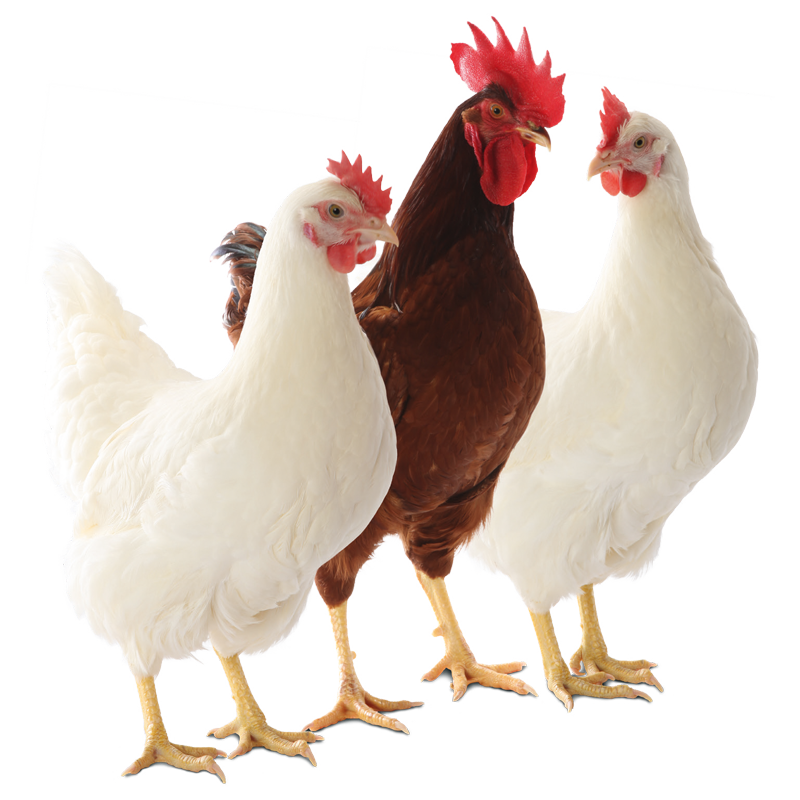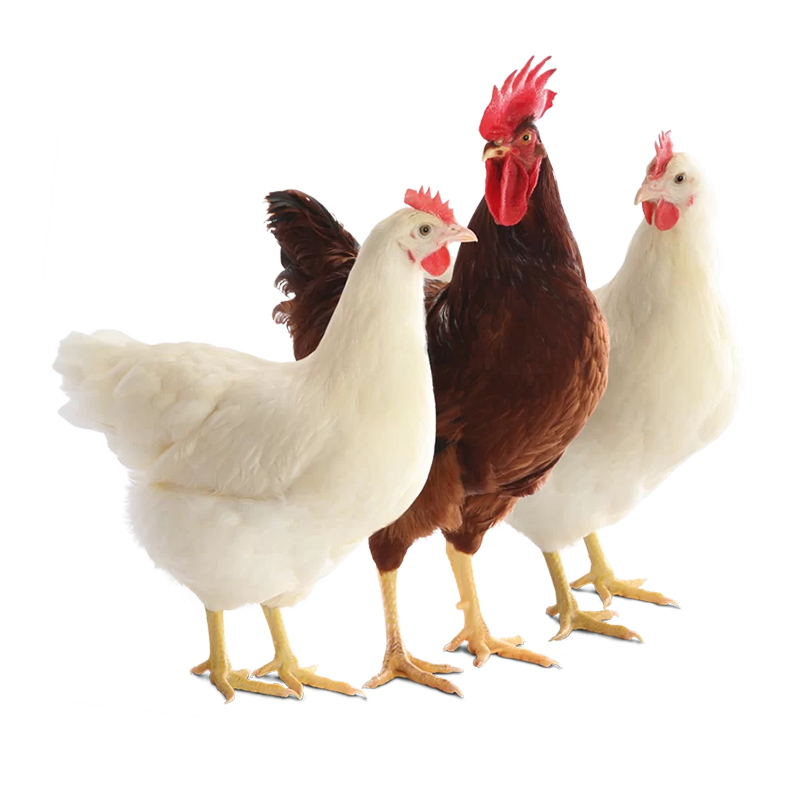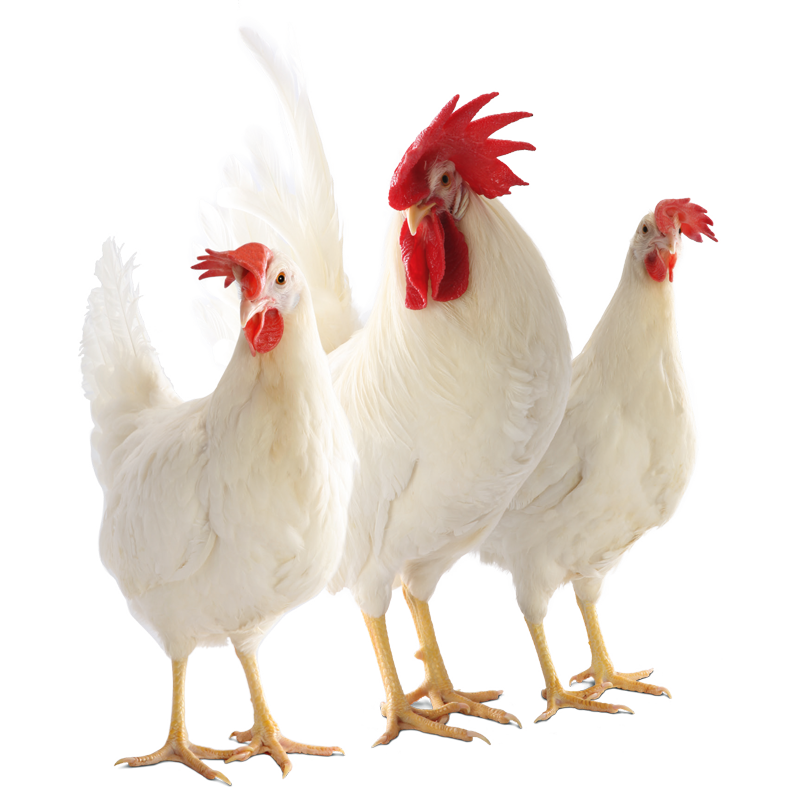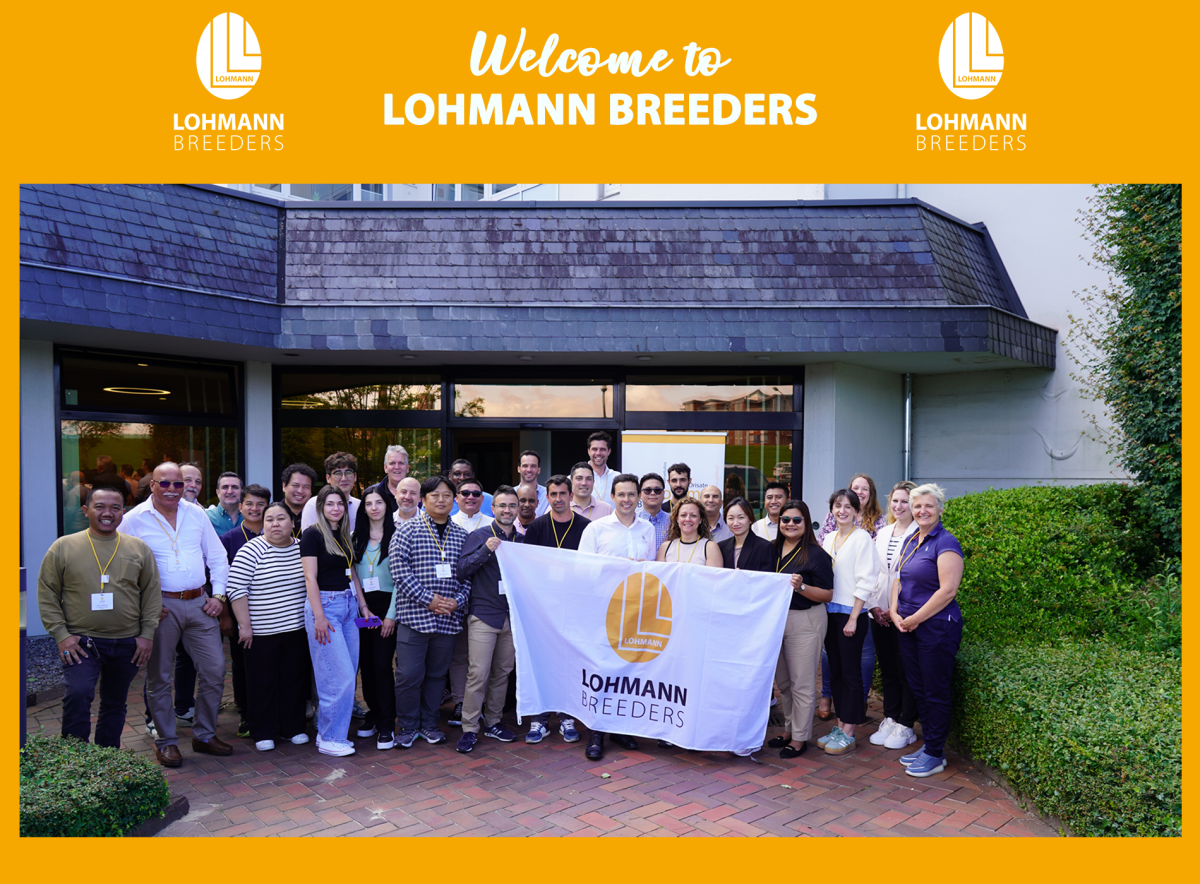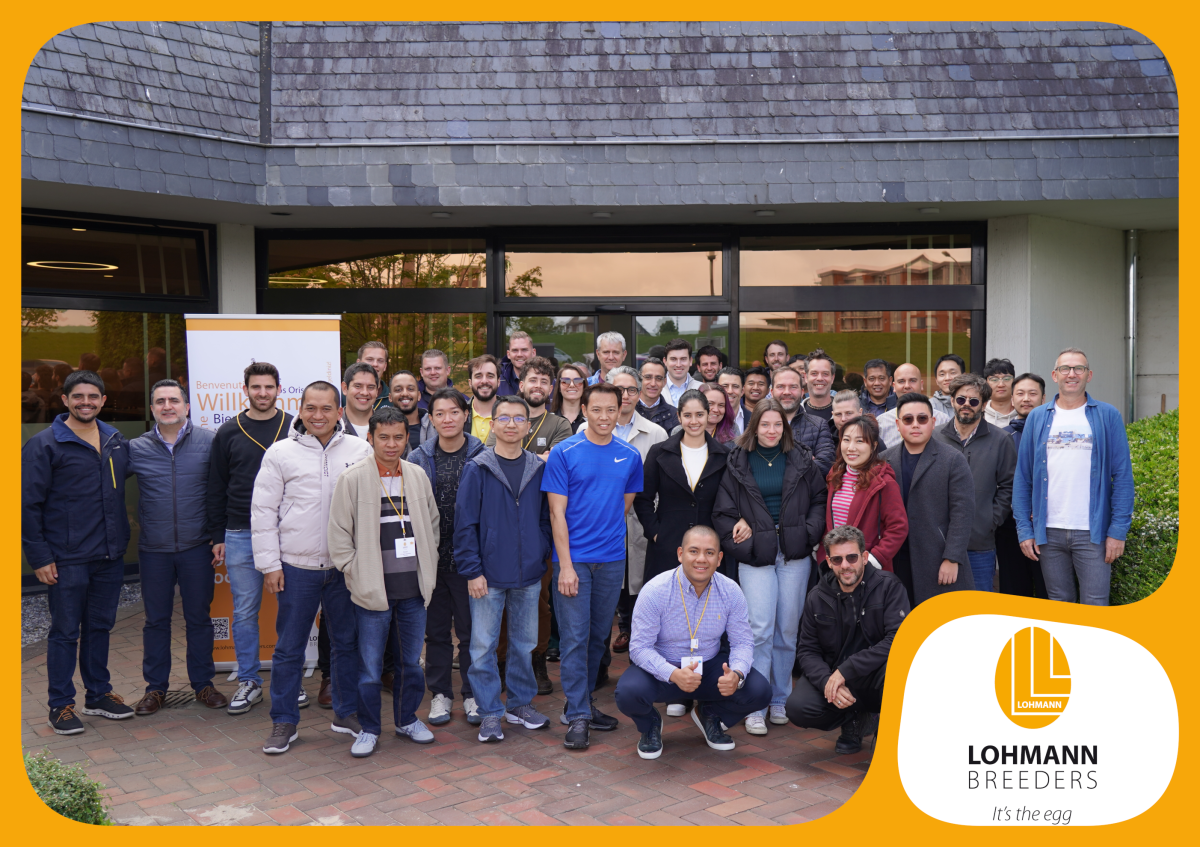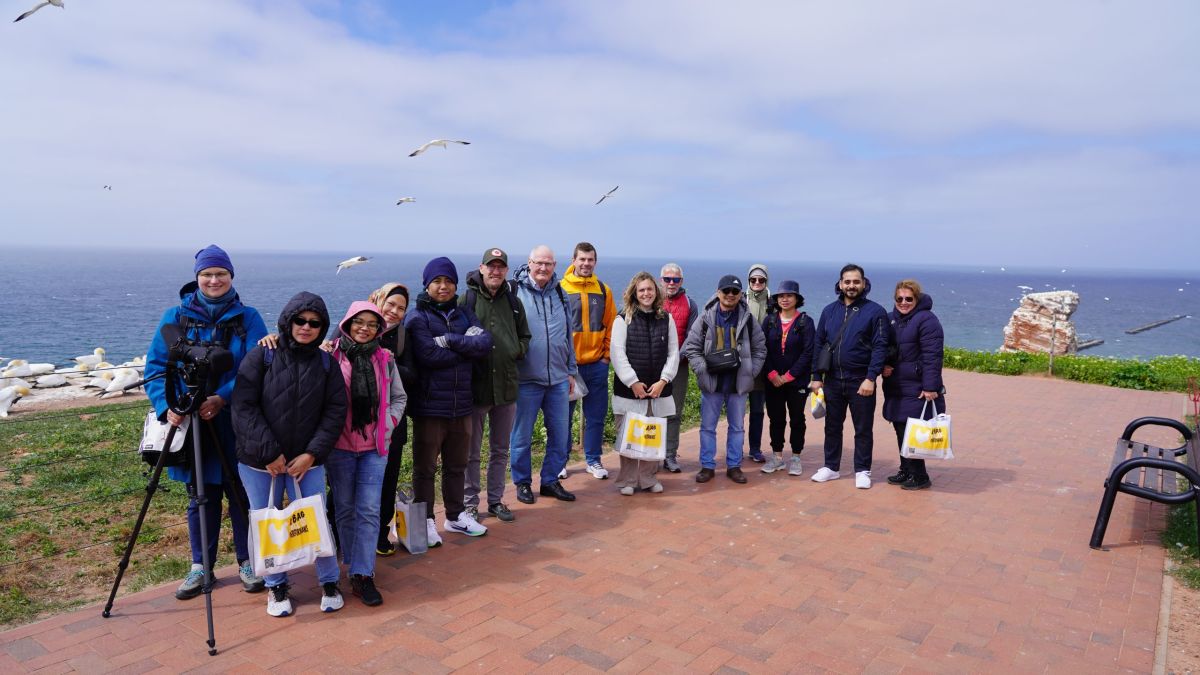LOHMANN TIERZUCHT has proven to be a successful key player in the poultry industry for many decades. To ensure the continuation of the success story of LOHMANN Layers it is of paramount importance to secure existing distribution channels and to create new gateways to the world.
Today’s challenges are different from the time when LOHMANN TIERZUCHT started layer breeding 1959 in Cuxhaven, Germany, focusing on europe and North Africa only. “In the meantime, we have a global presence covering over 120 countries on all continents, with the exception of Antarctica”, states Director Business Development Michael seidel. “LOHMANN TIeRZUCHT has become the global leader in the production of parent stocks and laying hens in the last five decades.” The Head Office is still at the same location in Cuxhaven. As are the two hatcheries Dorum and Altenwalde and the original breeder farms, of course.
New challenges
However, times have changed and the entire poultry industry is facing new challenges and threats. The most severe is the latent presence of Avian Influenza in the wild bird population. Outbreaks of LPAI or even HPAI are possible in most countries at any time and the risks are highest during the migration period of the wild birds. Outbreaks do not only have an enormous impact on the farm struck by the disease but they also affect the entire country to a certain extent. In any case, transportation and trade are affected and disturbed. This period may vary from three months up to three years from the date of cleaning and disinfection, leading to interruption of shipments and production cycles. Director of Global Reproduction Tobias Baumgarten: “To avoid this, LOHMANN TIERZUCHT is well-represented in all key regions around the world having its own production sites for pure lines and grandparent stocks in countries such as Germany, Denmark, Brazil, Canada and the USA.”
Production areas
To ensure production and breeding in Canada, LOHMANN TIERZUCHT started building new breeding farms in 2013. Location and layout of the breeding farms were selected to meet a very high biosecurity standard. eggs from the new production sites can be exported to Germany or hatched in the LOHMANN TIERZUCHT hatchery in Canada. “This allows us to be more flexible and provides us with more genetic backup in times of export restrictions in one of the production areas”, explains Baumgarten. “with the increase of production Canada will be a possible supplier of chicks to LOHMANN customers. In 2014 spain was added as an additional LOHMANN grandparent production site. The spanish production farms are jointly managed by LOHMANN and our long term partner Ibertec. This ensures high chick quality and vast experience in the industry.” This new production area offers all products and might be an option for countries to which LOHMANN could not deliver before. Another advantage of the new production site is that it is situated closer to North Africa, an important and growing region for the future. The time needed for transportation from spain is much less and the day-old chicks are closer to customers in Africa than the ones from Canada and German hatcheries.
However, availability of production alone does not automatically allow export shipments. Health certificates have to be in place. If the supplying LOHMANN hatchery and the receiving LOHMANN customer is within the european Union, this is easily achieved because of the common market and binding eU directives for all 28 member states. The eU follows the OIe (world Organisation for Animal Health) regulations with regards to management and handling of poultry movements in case of an outbreak of Avian Influenza.
Regionalisation
The so called ‘regionalisation’ is an important tool to ensure continuation of supplies and normal business unless the immediate region of the hatchery or farm is affected. Regionalisation is a methodology for disease control through the separation of disease free and affected areas on the basis of epidemiological criteria. exports to and from non-eU countries are more complex, especially if regionalisation is not applied and valid health certificates are required. In some cases inspections of the supplier farms and hatchery are necessary as a base for negotiations for an agreed health certificate.
Fact finding visit hatching eggs and day-old chicks
An official delegation from Bolivia visited Germany for one week with four high ranking officials, Ing. Mauricio Ordoñez Castillo, Chief executive Officer seNAsAG, Dr. Javier ernesto suárez Hurtado, Director state Veterinary service of seNAsAG, Dr. Hernan Oliver Daza Gutierrez, state Commissioner for epidemiology and Dr. Ornar Benavides Céspedes, Officer for the state Poultry Health Programme. The inspection was organised by LOHMANN TIERZUCHT in cooperation with the German Poultry Association.
The purpose was a fact finding visit concerning hatching eggs and day-old chicks to the Friedrich Loeffler Institute and other competent veterinary authorities to become acquainted with the German veterinary system and disease prevention. “Our goal was to create confidence with the officials to pave the way for German poultry being imported into Bolivia”, says Michael seidel.
Friedrich loeffler institute
The tour started at the Federal Research Institute for Animal Health, named Friedrich Loeffler Institute (FLI) having its headquarters on the Isle of Riems. Dr. J. schell presented the work of the FLI, which focusses on both farm animal health and welfare and on the protection of humans from zoonosis. Main topic of the visit was Avian Influenza.
Prof. Harder and Prof. Grund introduced the FLI as the international reference laboratory of the OIe for Avian Influenza. This was followed by an update of Dr. Homeier on H5N8 outbreaks in Germany and europe. “The most important message was the fact that all Avian Influenza outbreaks in Germany were regionally isolated cases and no cross contamination took place”, seidel shares.
The second day, LOHMANN TIERZUCHT was the major focus. seidel: “we visited our Head Office in Cuxhaven and paid a visit to the District Veterinary Office of Cuxhaven. Biosecurity and -protection were the main topics of the presentations and discussions. It goes without saying that LOHMANN TIERZUCHT as a primary breeding company has the highest possible standards.”
Veterinary system
Day three of the inspection brought us to GeseVO GmbH (Association of Disease Prevention) in Cloppenburg. The company is owned by various animal farmer associations. It is financed through the Animal Disease Funds of the states of Lower saxony and Mecklenburg western Pomerania. The purpose is to organise the combat of outbreaks of notifiable animal diseases as quickly and efficiently as possible. This is done through the killing and disposal of affected flocks in accordance with the German Animal welfare Act to prevent the disease from spreading. The company, which was founded in 2008, is able to be ready to leave fully equipped with trucks, cleaning and disinfection material within six hours after being alarmed.
The Federal Ministry of Food and Agriculture in Germany’s capital city Berlin followed. Dr. Axel stockmann, head of Division 334, responsible for veterinary affairs relating to export trade and international animal health policy welcomed the delegation jointly with Dr. A. Jackst giving introductory remarks on the German veterinary system. Lastly, Dr. Anette Jackst requested to consider an agreed health certificate between Germany and Bolivia based on regionalisation on district level. “This was conditionally agreed upon and might lead to new supply possibilities from Germany”, says seidel. “Before flying back home, we visited the Lufthansa Animal Lounge at Frankfurt International Airport together with the Hessian Veterinary Boarder Control station.”
Vietnamese Expert delegation
A similar visiting programme was done in November 2013 by a Vietnamese expert delegation of the Ministry of Agriculture and Rural Development. As a result of the visit, as of February 18th 2014, a ‘veterinary certificate for the exportation of day-old chicks from the Federal Republic of Germany to the socialist Republic of Vietnam‘ was agreed where the reference is directly to the breeding establishment and hatcheries.
As a result, the trade barriers have decreased due to the trust in the German Veterinary system and disease prevention, even in case of an outbreak of Avian Influenza. The next logical step to broaden the trade relation of both countries was the one-week visit of a group of experts in June this year, led by the Vice Chairman of Vietnamese Veterinary Association, Dr. Tran Dinh Tu and Dr. Mai Van Hiep, Deputy Director General Department of Animal Health, Ministry of Agriculture and Rural Development. Purpose of the visit was to establish a closer cooperation between the veterinary authorities and commercial establishments of both countries. On the agenda were visits of layer, broiler and egg production companies as well as an opening conference at the Ministry of Food and Agriculture in Berlin. During that meeting Vice Minister Peter Bleser welcomed the group.
“Initiated by LOHMANN TIERZUCHT through the German Poultry Association and supported by the German Federal Ministry of Food and Agriculture”, seidel concludes, “these programmes confirmed that trust and confidence is an important prerequisite to establish or ease trade and distribution channels for poultry and hatching eggs between Germany and countries worldwide.”
Michael B. Seidel
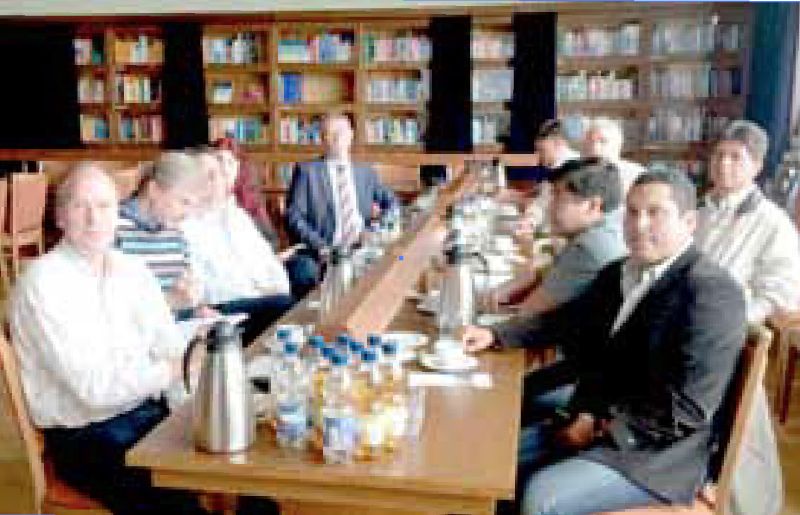
Visit to the Friedrich Löffler Institute (library)
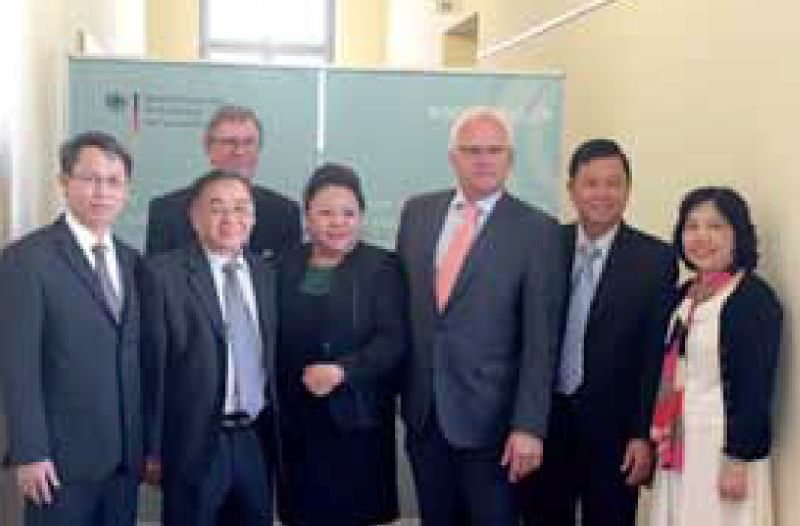
Parliamentary State Secretary with Vietnamese Delegation in the foyer of the Ministry

Mr. M. Kroschel in a conversation with translator Mrs. Anke Friedel-Nguyen, Dr. Tran Dinh Tu and Dr. Mai Van Hiep
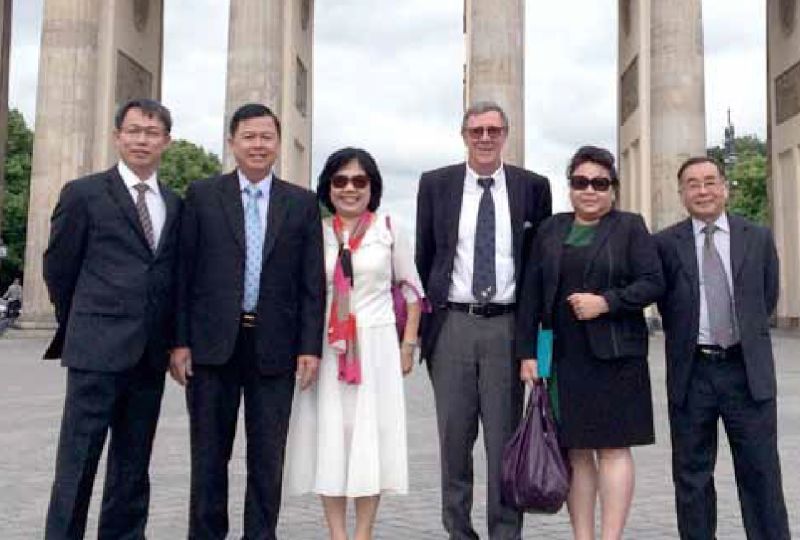
A touristic trip to the, Brandenburger Tor in Berlin“
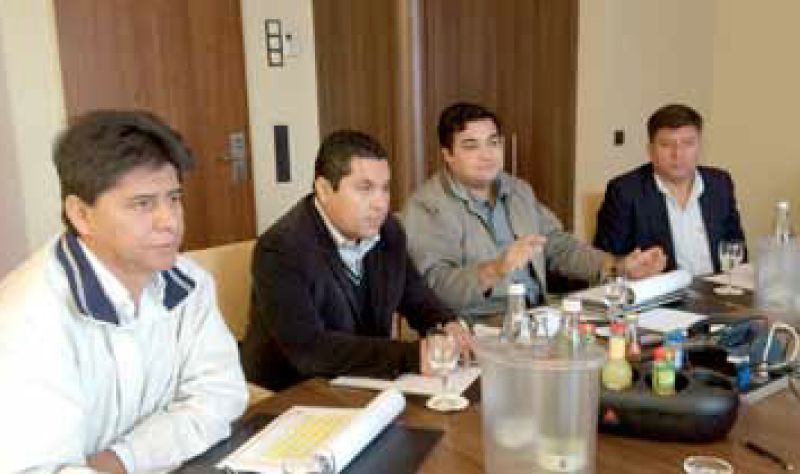
Bolivian Delegation f.l.t.r.: Dr. O. Benavides Céspedes, Ing. M. Ordnoñez Castillo, Dr. J. E. Suárez Hurtado, Dr. H.pedes, Ing. M. Ordnoñez Castillo, Dr. J. E. Suárez Hurtado, Dr. H. O. Daza Gutierrez
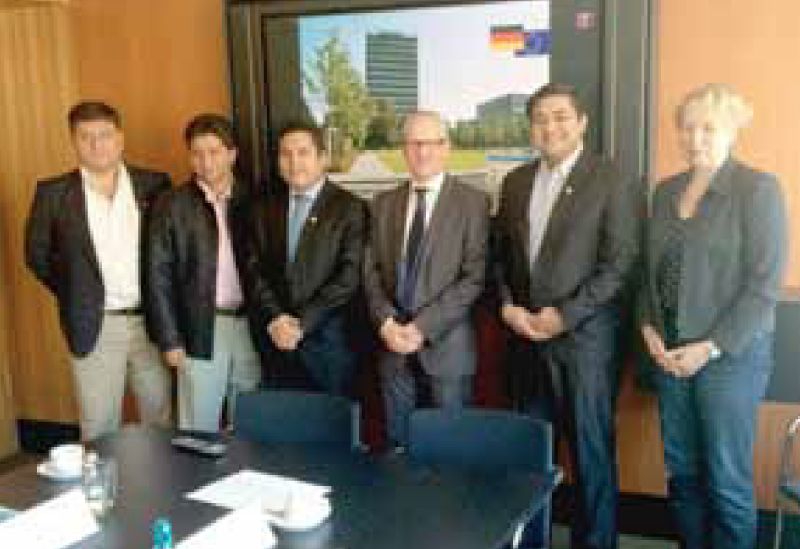
Visit of the Bolivian delegation in the Friedrich Löffler Institute
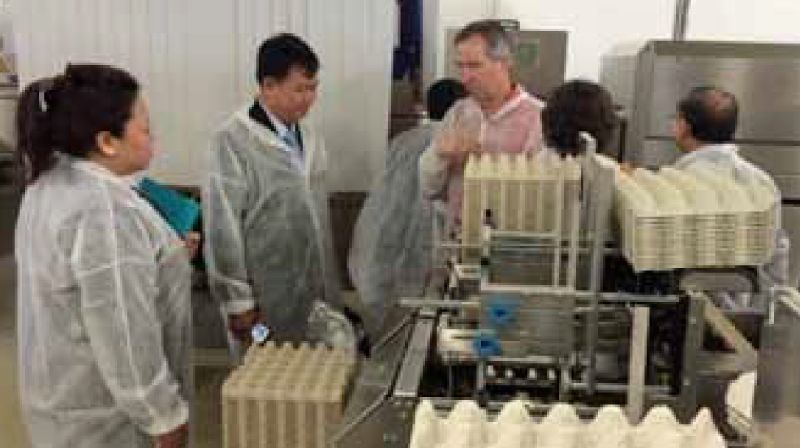
Mr. Kroschel guides the group through the packing station
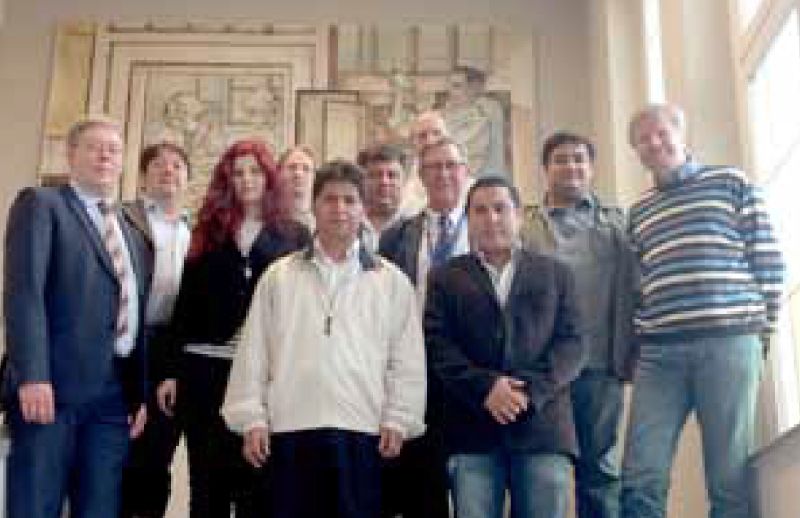
Visit of the Bolivian delegation in the Friedrich Löffler Institute
